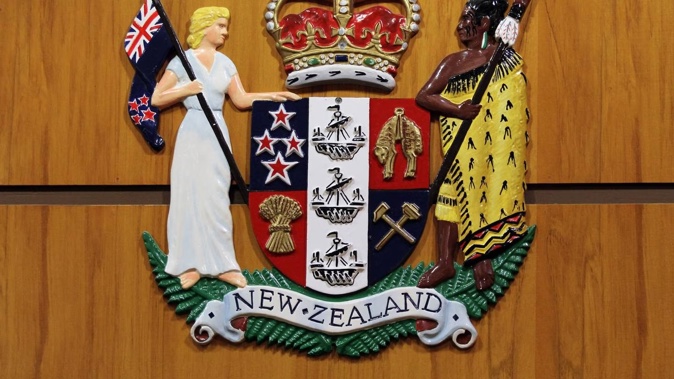
A branch of the tech company awarded a multi-million-dollar contract for an ambitious overhaul of New Zealand’s court management system has been named in a cartel conduct case in Australia.
DXC Technology won the contract over one other vendor to carry out the Ministry of Justice's Te Au Reka project, a major IT upgrade designed to make it easier to interact with our courts and tribunals.
It’ll first be rolled out in Family Court – and is thought to be worth in the region of $169 million.
Secretary for justice Andrew Kibblewhite told Parliament's Justice Committee of the procurement in late August, “... it’s of that sort of order.”
He said $7.8 million had been spent so far through various design processes, the procurement and the development of business cases.
The exact timeline for the delivery of the project also remains up in the air with phase one beginning this month and due to be complete in June 2024.
Deputy Secretary of Te Au Reka, Victoria McLaughlin told the Justice Select Committee the procurement process took about nine months.
DXC Technology is an American multinational company that helps global companies run their mission-critical systems and operations – employing more than 130,000 people in more than 70 countries.
However, in early September, Australia’s competition regulator, the Australian Competitor and Consumer Commission (ACCC), named DXC Technology Australia in a cartel conduct case relating to three WA mining projects.
Swift Networks Pty Ltd admitted it agreed with competitor DXC Connect Pty Ltd and DXC Technology Australia that one of them would submit a higher price than the other in response to a request for bids.
“Bid rigging is a serious breach of competition laws. Cartel conduct such as this can lead to higher prices for other businesses, and ultimately consumers,” ACCC Commissioner Liza Carver said.
The Federal Court ordered Swift Networks to pay a penalty of $1.2 million.
The ACCC did not take any court action against DXC.
DXC Technology has been sought multiple times for comment.
McLaughlin admits the Ministry was not aware that DXC Technology had been named in proceedings conducted by the ACCC against Swift Networks Pty Ltd.
But, she says, they’ve received assurance from DXC Technology NZ Ltd that alleged activities ‘of this nature’ did not occur as part of their response to the Te Au Reka Response for Proposal.
In New Zealand, the Commerce Commission's competition general manager Antonia Horrocks says they work to educate both central and local government procurers about how to spot bid rigging.
"Some of the things we might help procurers look at is unusual patterns in bid behaviour. Either, people not bidding that you might expect to bid, unusual patterns in the prices of those bids, or the scope of the bids," she said.
"As someone responsible for stamping out anti-competitive behaviour, it's never great to see a company infringing the law.”
“I certainly hope companies playing in our markets are doing so by the rules.”
McLaughlin says while the Te Au Reka procurement process did not include consultation with the New Zealand Commerce Commission – the terms and conditions for the Te Au Reka Request for Proposal included an anti-collusion clause.
“All respondents were required to agree to these terms and conditions. In addition, respondents warranted that they had not entered into any improper, illegal, collusive or anti-competitive arrangements with any competitor.”
National’s courts spokesperson Chris Penk thinks more could be done to have additional, concrete evidence nothing similar's happened here.
"It'd be prudent whether the Commerce Commission or Ministry of Justice to seek assurances directly from the entity that there isn't similar anti-competitive behaviour here -- and I know that has been given, at least so far.”
“But, if there isn't anything to back that up it seems a bit of a missed opportunity to provide some assurance that the contract isn't going to be compromised similarly."
He’s also critical of how long the project’s taken to get off the ground.
"I'm a bit mystified as to how it's taken quite so long in terms of execution. But, the questions I've asked about that indicate that it's been going as well as they'd expected or planned."
Minister of Justice Ginny Anderson is confident the correct procurement process was followed by the Ministry of Justice.
"I understand that the NZ Government Procurement group was involved in the review of the Te Au Reka procurement process."
The overhaul mirrors a similar, equally ambitious, Court Reform Programme in the UK – which, at December 2022, had chewed through much of its £1.3billion budget.
It only had £120 million left to deliver 20 of its promised 44 reforms.
Kibblewhite told Parliament's Justice Committee they’ve looked at the UK project.
"It’s caused – I mean, they’ll get a lot of gain from it, but it’s had big overruns, it’s taken longer, it’s caused a lot of angst and grief there," he said.
Penk hopes we’re learning from others’ mistakes.
“But, it seems like they've been pretty loose elsewhere and we're heading down the same track so far, as far as I can tell."
LISTEN ABOVE
Take your Radio, Podcasts and Music with you









